The following article is written by Layne Lyons or Layne Lyons, Inc. She shares insight on a simple, yet powerful, way to protect yourself on social media.
Do You Know How To Protect Yourself On Social Media?
Today I am going to teach you how to stay safe on social media. You know I am passionate about making all this legal “stuff” easy and straightforward for you, so you can run your business like a boss. Let’s dive in…
This post may contain affiliate links. Please read our disclosure for more info.
Your Business Could Be Exposed!
Being visible and sharing what you know on social media is a great way to reach new clients, connect with your tribe and increase your following. But I get calls all the time from my clients worrying that things they are saying on social media are gonna get them into trouble.
The reality is that posting your content, running groups, and teaching to a general audience can expose your business to all kinds of sticky drama that could lead to confusion, disgruntlement, and (in the worst cases) legal actions.
The reality is that posting your content, running groups, and teaching to a general audience can expose your business to all kinds of sticky drama that could lead to confusion, disgruntlement, and (in the worst cases) legal actions.
To keep you safe and sound, let your Mini-Disclaimer do the heavy lifting.
Saved By The Mini-Disclaimer
Your Mini-Disclaimer is a self-defense paragraph that packs a powerful punch. It tells people what you DO and, more importantly, what you DON’T do. It lets everyone know what capacity you are working in so they are aware that the information and education you are giving them isn’t supposed to be a substitute for individualized advice from a licensed professional (like a doctor/nurse/therapist/CPA, etc.).
Your Mini-Disclaimer is the bad-ass tool that can protect you from someone seeing your content on social media and using (or misusing it) and then coming back to blame you for a negative result.Click To Tweet
When you are sharing on social media, you aren’t speaking to any one person’s specific circumstances, you are giving general information that may not be appropriate for every person in every situation. And it is up to you to make it clear that you are providing general education, and everyone reading or watching it is encouraged to seek individualized care from a licensed professional before implementing any of your ideas.
Your Mini-Disclaimer is the bad-ass tool that can protect you from someone seeing your content on social media and using (or misusing it) and then coming back to blame you for a negative result.
4 Ways to Protect Yourself
Here are four ways to use your industry-specific Mini-Disclaimer* to protect yourself on social media:
1. Group Rules / Description
In the group rules/description on your Facebook groups. Type out the full paragraph of your Mini-Disclaimer into the sidebar of your page.
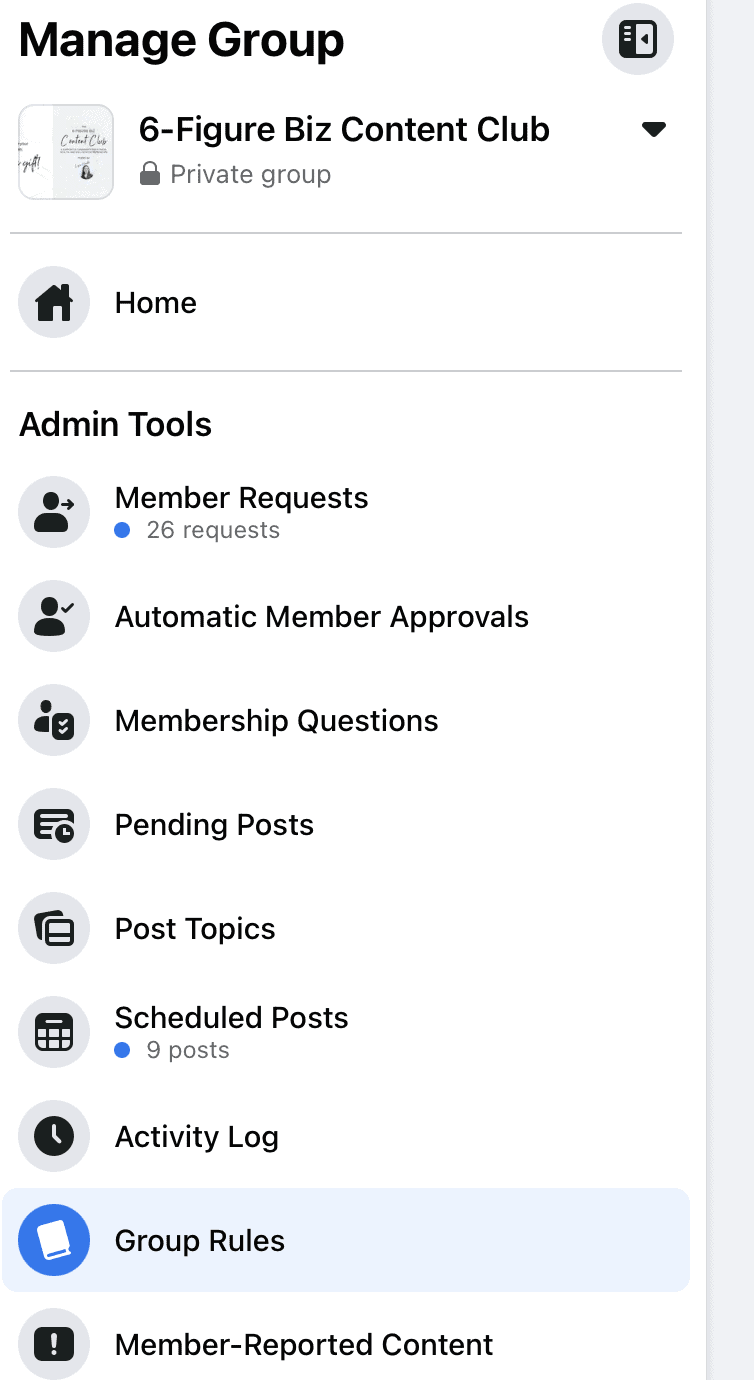
2. Pre-Screening Questions
As one of the pre-screening questions for new members joining your Facebook group. Add a question with a link to your Disclaimer and a YES/NO “I have read this Disclaimer and agree to it” answer.
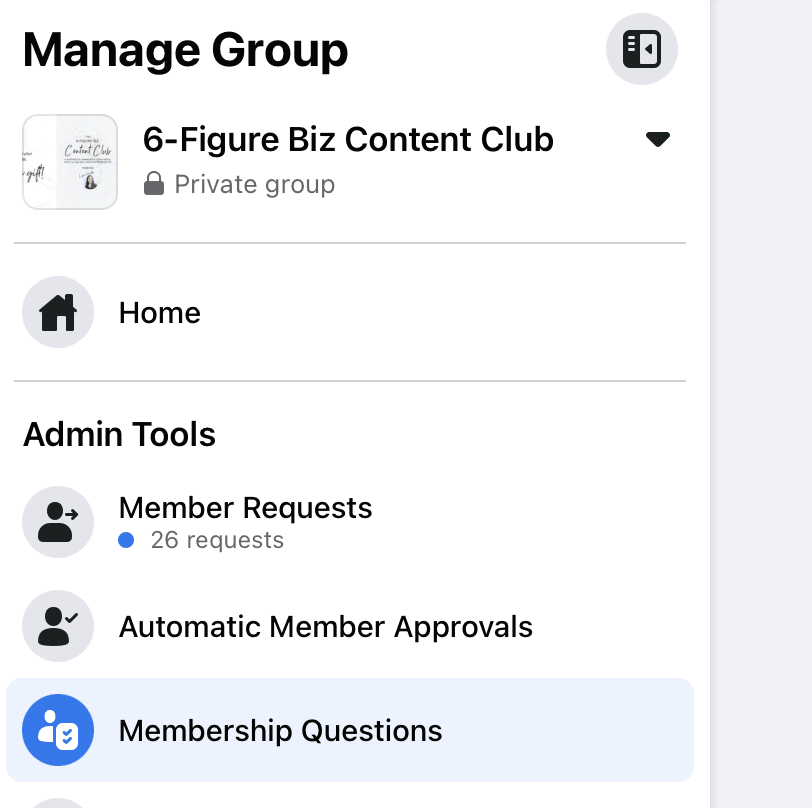
3. Pinned Post
Make a pinned post and ask members to agree. This is a great option if you’ve been running your group for a while, but you know you haven’t been legally careful. Now you realize you want to add legal protections so you can go forward with confidence. To be assured your group knows your scope, you can add a post, pin it and ask everyone to agree to it by posting a yes in the comments. If you have a big group, you might ask an assistant to make sure everyone has posted.
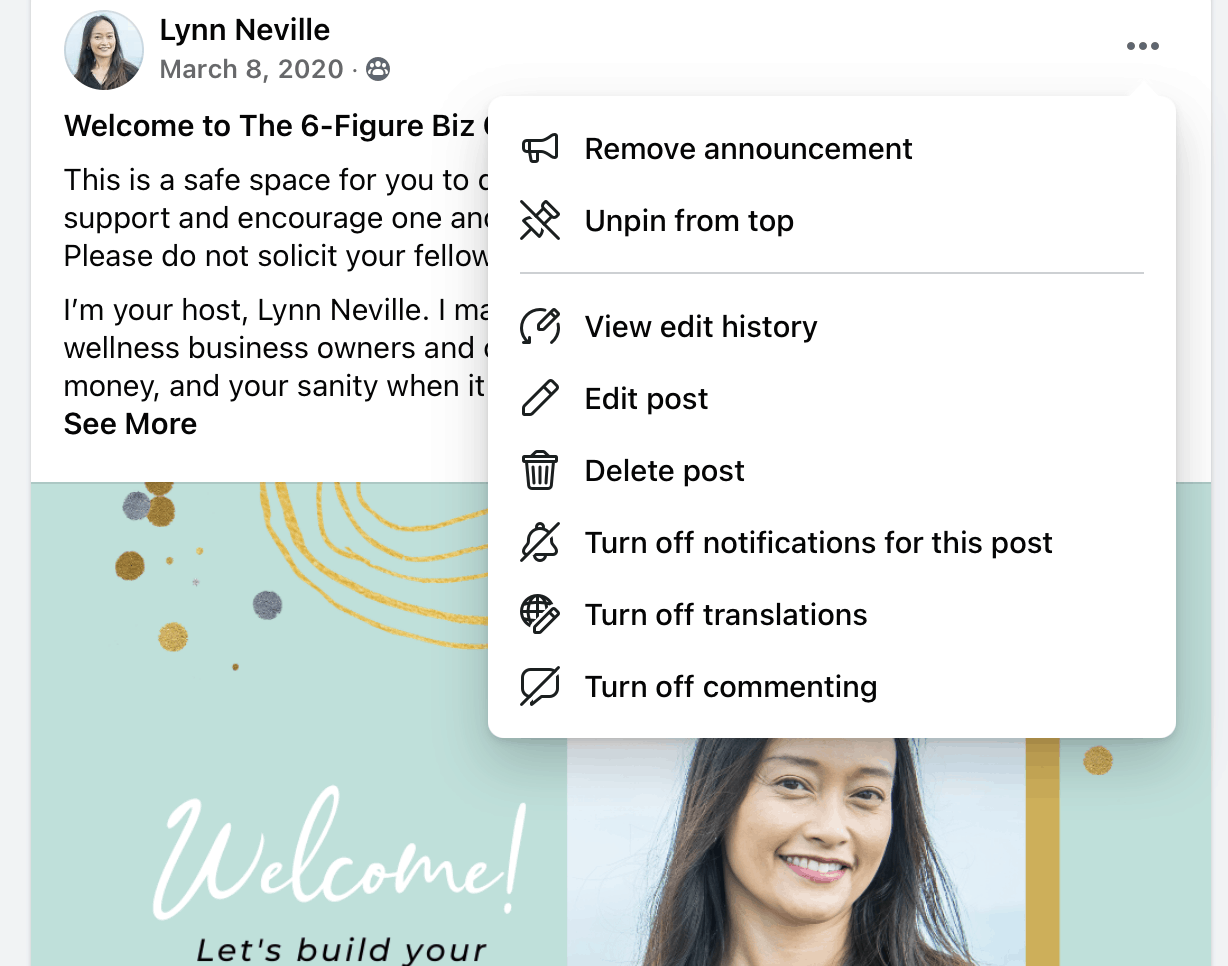
4. Your Profile
Add it to the linktree on your Instagram profile. Add the link to your website Disclaimer so viewers can read your policies with just one click.
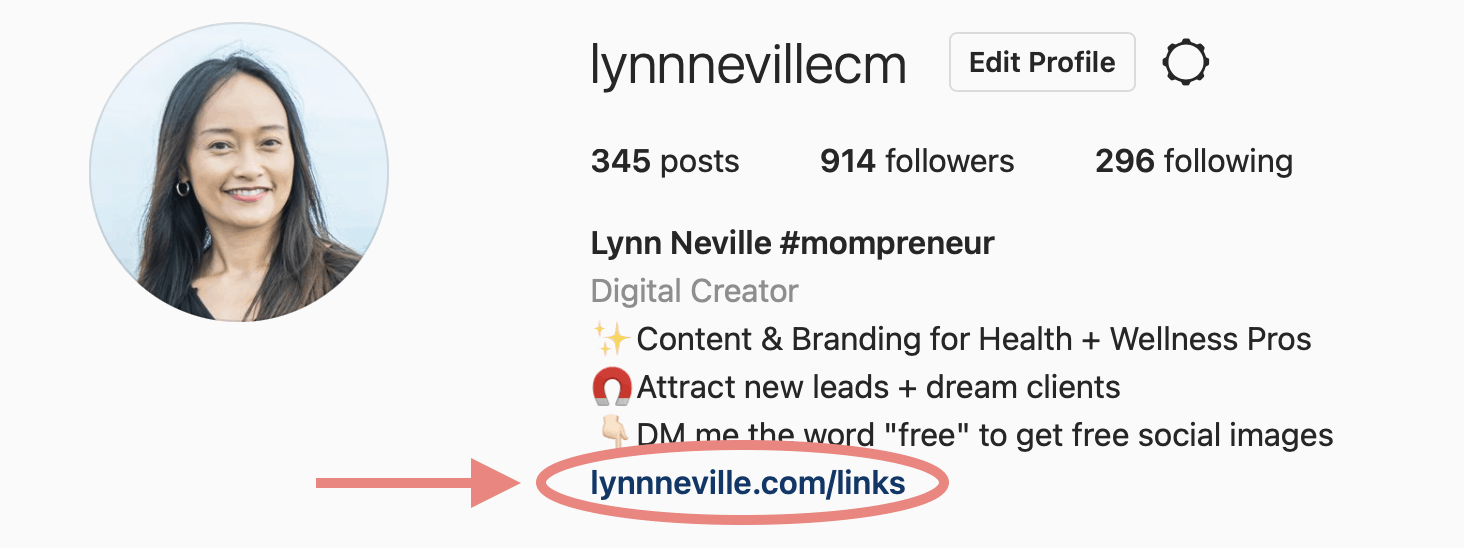
Remember, the goal is to make it clear to everyone exactly what capacity you are working in (and not working in) so no one gets confused and relies on your info for an unintended purpose. Post your Mini-Disclaimer on your pages, your groups, and your profiles to stay safe, sound, and on the good side of social media.
 Layne Lyons, inc. provides legal information for online entrepreneurs. This article is for educational and informational purposes only and is not legal advice. No attorney-client relationship has been formed through reading this article. Nothing in this article should be construed as a substitute for a consultation with a local lawyer who can review and advise you on your specific situation. You are advised to consult a licensed attorney in your jurisdiction to ensure compliance with your local laws. Because laws vary from state to state and are always evolving and changing, Layne Lyons, inc. is in no way responsible for any errors or omissions in this article and expressly disclaims liability for any loss or damages that result. Layne Lyons, inc. owns all copyrights to the materials presented here unless otherwise noted.
Layne Lyons, inc. provides legal information for online entrepreneurs. This article is for educational and informational purposes only and is not legal advice. No attorney-client relationship has been formed through reading this article. Nothing in this article should be construed as a substitute for a consultation with a local lawyer who can review and advise you on your specific situation. You are advised to consult a licensed attorney in your jurisdiction to ensure compliance with your local laws. Because laws vary from state to state and are always evolving and changing, Layne Lyons, inc. is in no way responsible for any errors or omissions in this article and expressly disclaims liability for any loss or damages that result. Layne Lyons, inc. owns all copyrights to the materials presented here unless otherwise noted.

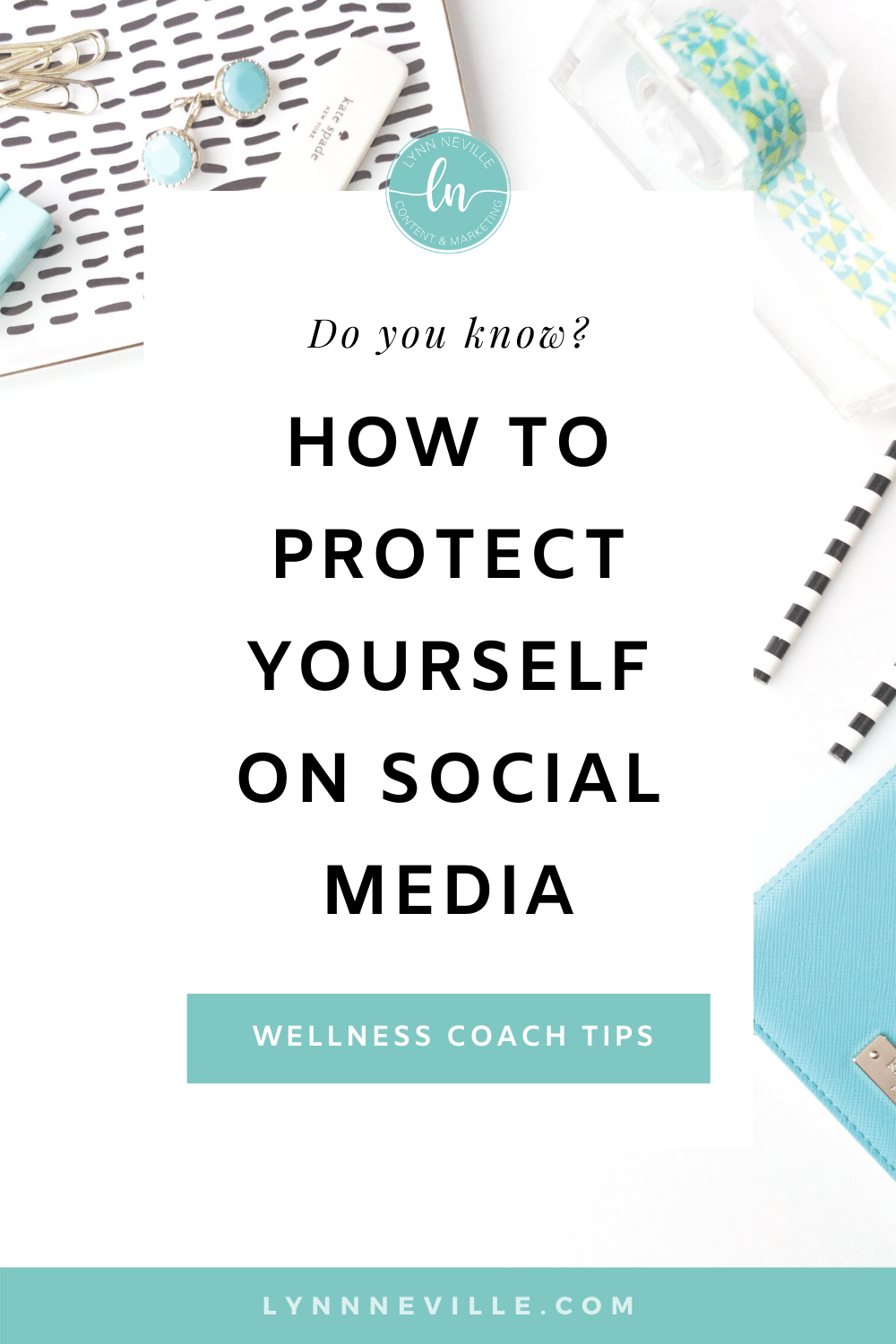
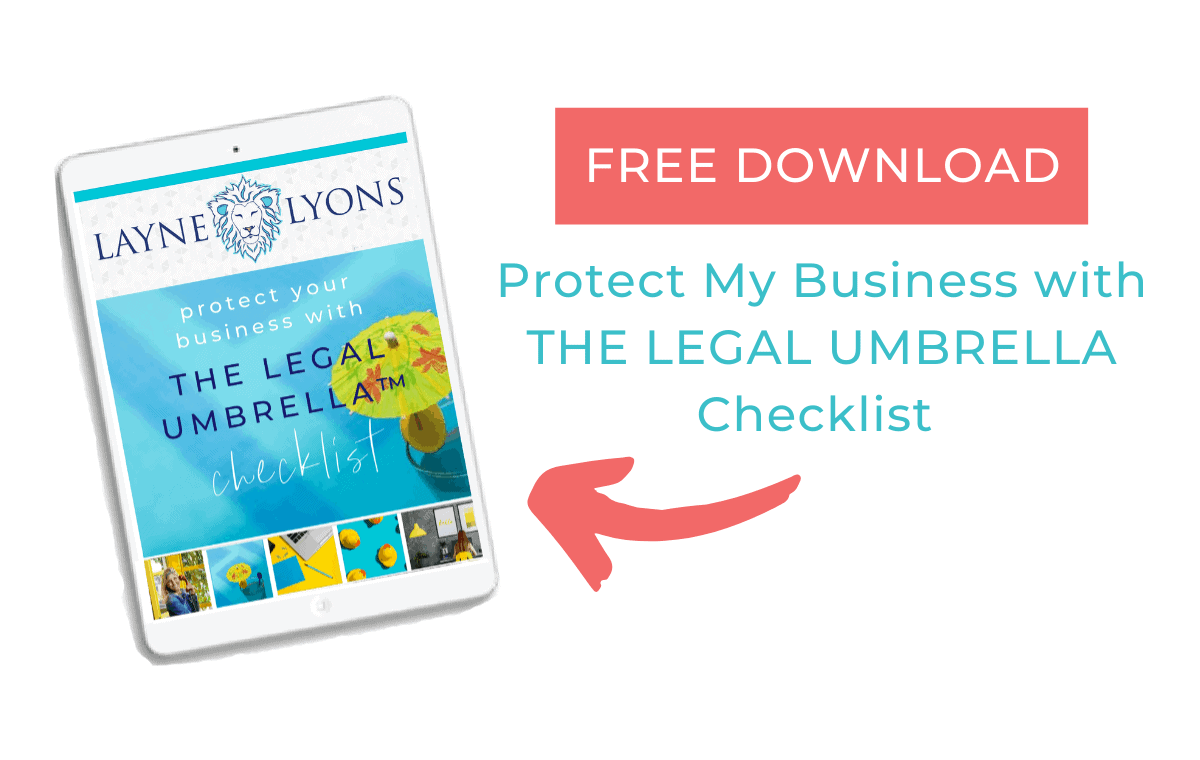
I found this article helpful!
Great!
This was super helpful, I’ll be pinning this for future references!
That’s great to hear!
This is so informative and helpful. I didn’t think of this, I havedisclaimer on my blog, but not on social media. Thank!
Yes! We need to protect ourselves on social media too.
No one is really sharing such informative and critical data points for any Business. Thanks Lynn for sharing it. Will surely implement it.
Thank you for sharing. So informative!